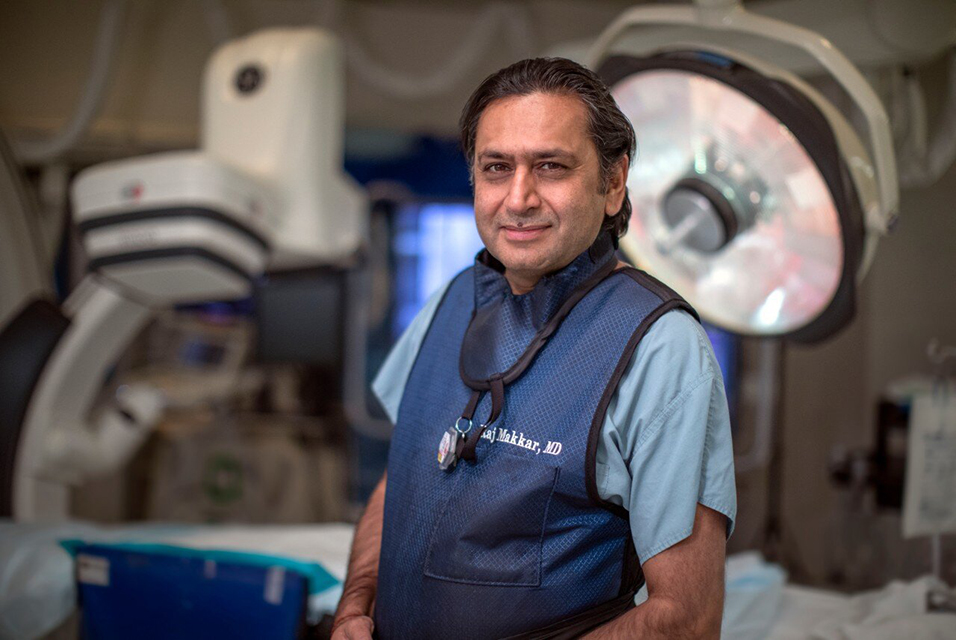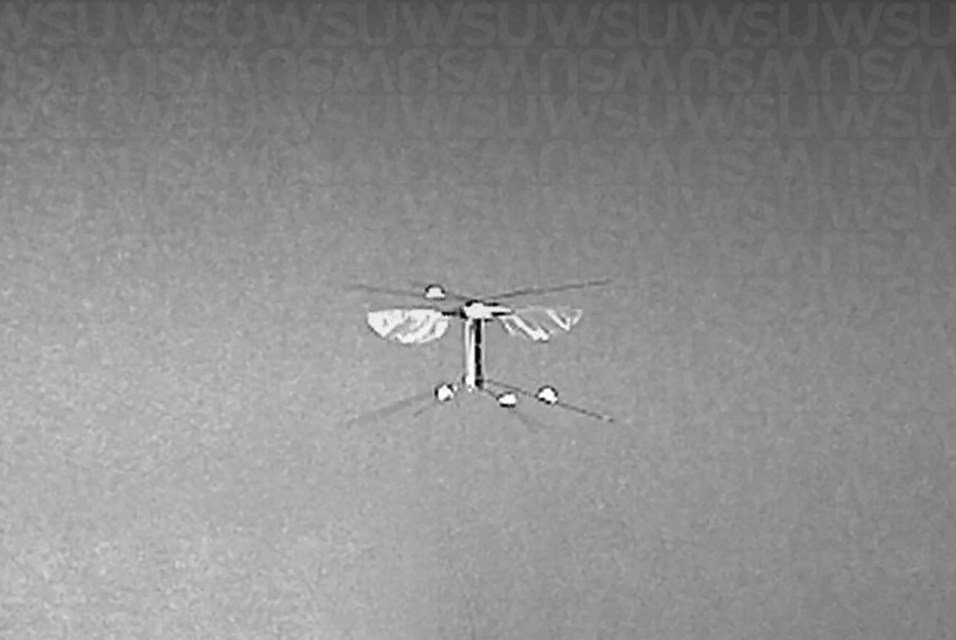LOS ANGELES, CA.- Long-awaited outcomes data of transcatheter edge-to-edge procedures to repair patients' leaky mitral valves revealed the minimally invasive procedure to be safe and effective in nearly 90% of patients, according to
Cedars-Sinai physician-scientists.
Their findings on the condition called degenerative mitral regurgitation were published today in the peer-reviewed Journal of the American Medical Association (JAMA), representing the largest study to date that examines outcomes for patients treated outside of a clinical trial with transcatheter edge-to-edge repair (TEER).
"Treatment was successful in nearly nine out of every 10 patients in whom TEER was used to repair their mitral valve," said Raj Makkar, MD, Cedars-Sinai's vice president of Cardiovascular Innovation and Intervention, the Stephen R. Corday, MD, Chair in Interventional Cardiology and the study's senior author. "These strong safety and efficacy outcomes were validated, despite the advanced age and significant comorbidities of these patients."
Degenerative mitral regurgitation occurs when the mitral valve—one of the heart's four valves—becomes leaky. While a very small amount of leakiness is common, some people have severe mitral valve regurgitation that can cause blood to leak back through the valve, which can cause fluid buildup in the lungs, with shortness of breath and limited ability to exercise. When this occurs, intervention is required.
Using data from the Transcatheter Valve Therapy (TVT) Registry—a jointly maintained database from the Society for Thoracic Surgery and the American College of Cardiology—investigators analyzed 19,088 patients who underwent TEER for moderate to severe isolated degenerative mitral valve regurgitation between January 2014 and June 2022.
The study's primary endpoint was mitral regurgitation success, defined by investigators as moderate or better residual mitral regurgitation without narrowing of the mitral valve. Additional endpoints included death while hospitalized and within 30 days and within one year of the procedure.
Key findings include:
• Patients' average age was 82.
• 49% were women.
• Mitral regurgitation success was shown in 88.9% of patients.
• At 30 days, the incidence of death was 2.7%, stroke was 1.2% and mitral valve reintervention was 0.97%.
• The lowest mortality rate was observed in patients who had both mild or less residual mitral regurgitation.
"For patients at elevated risk for surgery, TEER with the MitraClip device is a meaningful treatment option," said Makkar, who is also the associate director of the Smidt Heart Institute. "The procedure is getting many patients back to a more energetic life, and back to activities some haven't been able to do for years."
To treat mitral valve regurgitation—a condition affecting more than 2 million Americans—experts from the Smidt Heart Institute at Cedars-Sinai rely on either the minimally invasive TEER procedure, minimally invasive robotic surgery or minimally invasive surgery. All patients treated at Cedars-Sinai meet with an interventional cardiologist as well as a cardiac surgeon before making their treatment decision.
"Surgery is successful in nearly 100% of patients having degenerative mitral repair today in the United States, restoring normal life-expectancy in most patients," said Joanna Chikwe, MD, chair of the Department of Cardiac Surgery at Cedars-Sinai, the Irina and George Schaeffer Distinguished Chair in Cardiac Surgery in honor of Alfredo Trento, MD, and a study author. "A heart team discussion is essential for patients deciding between surgery or interventional approaches, and we need randomized trials to inform these important decisions."
Chikwe is principal investigator of the PRIMARY clinical trial—a multicenter, multicountry trial—comparing the surgical approach for valve repair with the TEER procedure. The trial, funded by the National Institutes of Health, is expected to complete enrollment in January 2026.
"This landmark study epitomizes the way Smidt Heart Institute physicians and surgeons work together to advance knowledge, guiding us in doing what's best for any given patient—this is, after all, why we come to work every day," said Eduardo Marbán, MD, Ph.D., executive director of the Smidt Heart Institute and the Mark S. Siegel Family Foundation Distinguished Professor.
Cedars-Sinai has performed more transcatheter aortic valve replacements and mitral valve repairs than any other center in the U.S., with outcomes that place Cedars-Sinai among the top-performing programs nationally. The Smidt Heart Institute team has also preformed more than 1,500 robotic mitral valve repairs with near 100% success rates.










